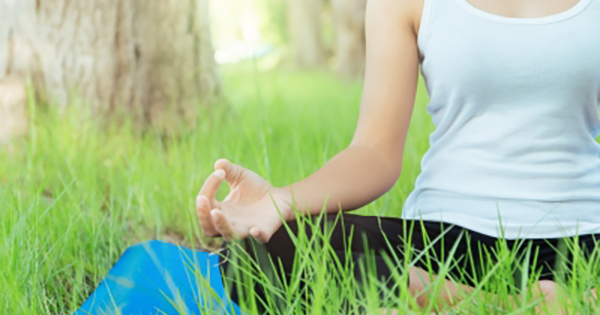How to Reduce Stress When You Don’t Have Time for Activity
 When you are stressed your body releases stress hormones to prepare the body for “fight of flight”. This hormone release causes heart rate to increase and blood vessels to constrict. The combination leads to elevated blood pressure. With short term stress, this is a temporary rise in blood pressure that resolves itself once the stressful situation is resolved.
When you are stressed your body releases stress hormones to prepare the body for “fight of flight”. This hormone release causes heart rate to increase and blood vessels to constrict. The combination leads to elevated blood pressure. With short term stress, this is a temporary rise in blood pressure that resolves itself once the stressful situation is resolved.
But what about when you live with chronic stress?
There is no direct scientific link between chronic stress and high blood pressure. However, stress is connected to many behaviors directly tied to high blood pressure and heart disease, such as consuming alcohol, lack of sleep, and overeating.
Physical activity for stress relief… but what if you don’t have time?
Being physically active is a proven method you can use to reduce stress levels. Activity triggers the brain to release “feel-good” chemicals to ease stress. Exercising and being active are also proven ways to lower blood pressure.
However, time and location may not always be conducive to employ activity to lower stress levels. Here are ten alternate techniques for reducing stress.
- Eat a healthy diet
- Avoid alcohol
- Stop smoking.
- Get enough zzz’s.
- Decrease sugar and caffeine intake.
- Meditate.
- Socialize.
- Practice deep breathing.
- Laugh
- Change your thinking.
Include foods rich in vitamins and minerals to counteract stress, such as fresh vegetables, fresh fruits, fish, and yogurt.
This potential short term “fix” to alleviate stress can quickly turn into a long term problem.
Smokes may claim smoking reduces stress, but research shows those who smoke experience slightly higher stress levels than those who do not.
Not getting enough sleep causes the body to release more of the stress hormone cortisol. Elevated cortisol levels increase risk of insulin resistance leading to obesity and diabetes. Plus, difficulties are always more challenging when you are sleep deprived, which equals increased levels of stress.
Tea, coffee, and cocoa contain neuro-stimulators, such as caffeine, which increase stress. You also want to avoid foods high in sugar to prevent additional increases in blood sugar… stress on its own triggers the body to raise blood sugar levels via cortisol release.
Meditation leads to reduced mental overload and a heightened sense of peace and balance, benefiting both emotional and overall health….as well as stress reduction. Keep in mind meditation take practice.
Social support has a protective effect on health. When it comes to stress reduction friends and family provide essential support to allow you to relax and stress less.
Simply paying attention to your breathing and focusing on slow deep breaths can lead to relaxation and stress reduction.
Laughter triggers physical changes within your body, stimulating organs and circulation while promoting muscle relaxation. A good laugh counteracts the body’s response to stress.
God grant me the serenity to accept the things I cannot change, courage to change the things I can, and wisdom to know the difference. Recognize what you can and cannot change. Don’t waste time (and damage your health!) on things you cannot change. Focus on what you can.
All the best,
Lisa Nelson RD
Health Pro for HealthCentral
Image courtesy of blackzheep / FreeDigitalPhotos.net



